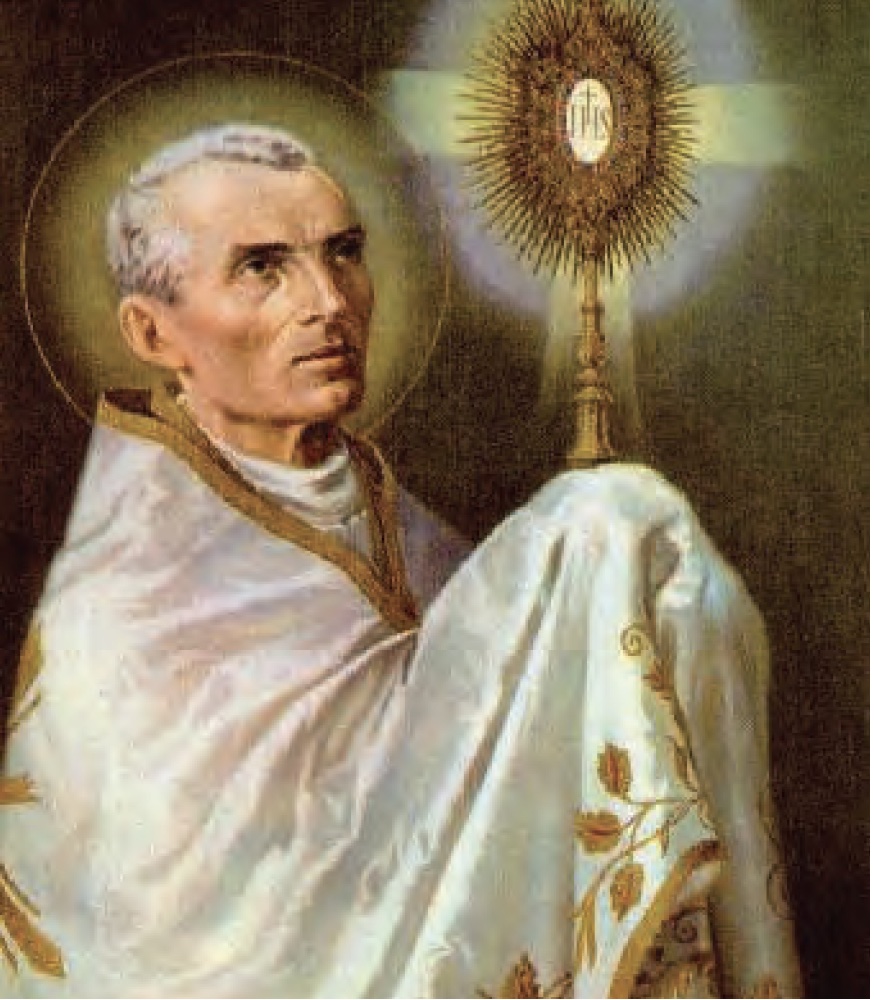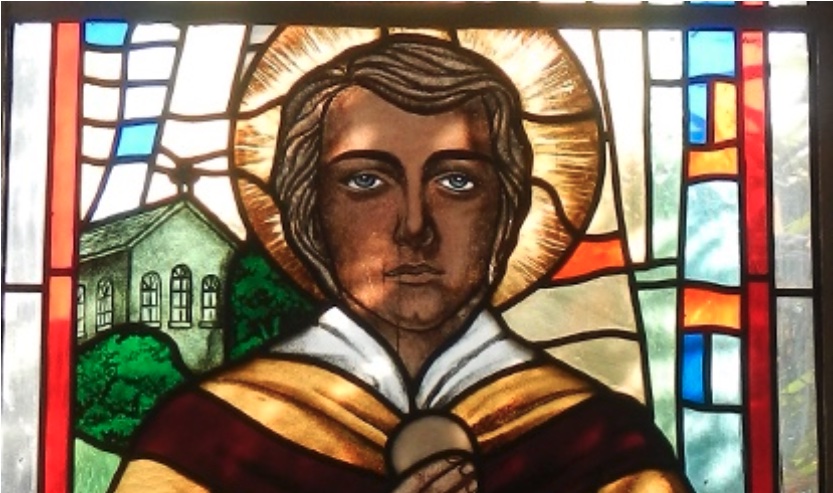1811-68
Feast day: Aug. 2
Though he suffered from poor health, and was in and out of seminary several times because of it, St. Peter Julian Eymard’s priesthood magnified a great love for the Eucharist and a tenacious desire to spread Eucharistic devotion. These have earned him renown as an apostle of the Eucharist.
This Eucharistic zeal was evident from an early age, when something like the Christ child who wandered off to Jerusalem’s temple, young Eymard could not be found by his family — only to be located near the local church’s tabernacle. When found, he said, “I am here listening to Jesus.”
Eymard’s road to the priesthood was difficult and filled with obstacles. But in God’s grace they were overcome one by one. He was ordained to the diocesan priesthood in 1834, and he was eventually led to a vocation to religious life with the Society of Mary, known as the Marists.
In the wake of the French Revolution and its hostility to Catholicism, Eymard was aware of the great need to build up the faith of the laity. His hard working, zealous and energetic nature led him away from his inclination toward the contemplative life, to embrace an active life of preaching, teaching and formation of the faithful.
On the feast of Corpus Christi in 1845, while carrying the monstrance containing the Blessed Sacrament during a procession in Lyons, France, Eymard’s heart began to burn afresh with zeal for the Eucharistic Lord. He heard the call to “bring all the world to the knowledge and love of our Lord; to preach nothing but Jesus Christ, and Jesus Christ Eucharistic.” Discerning this as the path forward for his own life and ministry, Peter Julian knew that the rebirth of Catholicism in France would only be successful if grounded in a renewed love for the Eucharist.
Although not supported by superiors of his religious community in carrying on his desire to increase Eucharistic devotion, Eymard established two religious congregations to carry out the charism he was called to foster in the Church: the Congregation of the Blessed Sacrament for men and the Servants of the Blessed Sacrament for women. They received approval by the Church in 1856.
Like so many others who found themselves in his shoes, Eymard learned quickly that founding a religious community would be a labor of love. Leaving aside the many opportunities for personal humiliation and the physical toll the work took, Eymard’s communities were so poor in their earliest stages that they relied on the goodness of another nearby religious community to provide them with food.

Public domain
As members of the hierarchy considered the Eucharistic way of life Eymard was proposing, they discerned his vision was correct because it led from worship and adoration to action. He came to understand the Eucharist’s transformative power to build up humanity in love. “Love cannot triumph unless it becomes the one passion of our life. Without such passion we may produce isolated acts of love; but our life is not really won over or consecrated to an ideal. Until we have a passionate love for our Lord in the Most Blessed Sacrament, we shall accomplish nothing,” he wrote.
The primary efforts of Eymard’s communities were focused on helping children and adults prepare for first holy Communion and encouraging lapsed Catholics to return to the sacraments. Recognizing that “You take Communion to become holy, not because you already are,” Eymard also advocated tirelessly for frequent reception of the Eucharist — which laid the path for Pope St. Pius X’s advocacy for the same.
Eymard’s life was spent encouraging others to do what he was doing as a 5-year-old: to sit at the feet of the Eucharistic Lord and listen to him. Never in particularly robust health, and often suffering from various ailments, Eymard died at age 57 on Aug. 1, 1868. A friend of saintly French priests like St. John Vianney and St. Peter Chanel, Eymard also achieved heroic virtue and sanctity, which the Church recognized at his canonization in 1962.
Michael R. Heinlein is editor of OSV’s Simply Catholic. He writes from Indiana. Taken from the “Inspired by the Eucharist” saint booklet.

